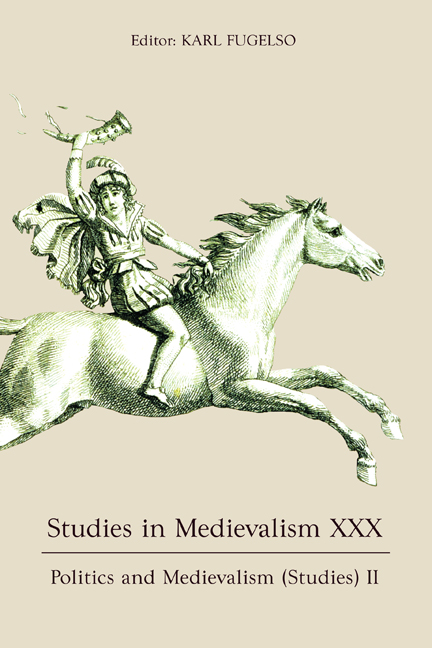The West Remembers (Its Premodern Self): Nation, Civilization, and the Insular Middle Ages in Game of Thrones
Published online by Cambridge University Press: 24 March 2021
Summary
Over its award- and corpse-strewn nine-year run, the international fantasy phenomenon Game of Thrones (HBO, 2011–19) achieved considerable notoriety. Both among scholars and the fan base, its representation of gender and race, its graphic violence, and its gratuitous sex provoked controversy. Unsurprisingly, it has also been hotly debated in the field of medievalism studies. The show's medievalism is a significant aspect of its world-building and, I would argue, also of its worldwide appeal. It has quite rightly been pointed out that much of the show's web of allusions is “premodern” rather than exclusively “medieval.” Yet, as I will show, the geographical distribution of these references to different premodern temporalities is hardly random, but rather serves to systematically set territories marked as “national” apart from the “non-national.” The Middle Ages, I argue, assume their old role as the supposed cradle of nationhood – a role they have played again increasingly widely in medievalism, fantasy or otherwise, since the turn of the century.
Some scholars of medievalism have objected to what they see as inadmissible positivism in discussions of the show. According to Riccardo Facchini, most such discussions have “lost themselves in sterile comparisons between ‘the medieval past’ and GoT's universe.” He suspects, as I do, that this is partly “a consequence of the plethora of declarations by Martin, Benioff and Weiss [i.e., the writer of the novels on which the series is based and the showrunners] concerning historical accuracy.” Richard Utz, too, criticizes the “uninspiring” originalism of approaches that consist in pointing out real-world historical analogues to events in Game of Thrones. He calls instead for analysis of “[w]hat imagined aspects of premodern culture continually attract reinvention, recreation, re-enactment and re-presentation, and why.” I would like in some small way to address these big questions in this essay. I will be discussing the HBO show here, with only minimal reference to Martin's novels. I do so mainly because it is plainly the show that has made the story of the struggle for the Iron Throne the huge international success it was. And it was continued surprise at the magnitude of that success which first prompted this essay.
- Type
- Chapter
- Information
- Studies in Medievalism XXXPolitics and Medievalism (Studies) II, pp. 157 - 172Publisher: Boydell & BrewerPrint publication year: 2021

